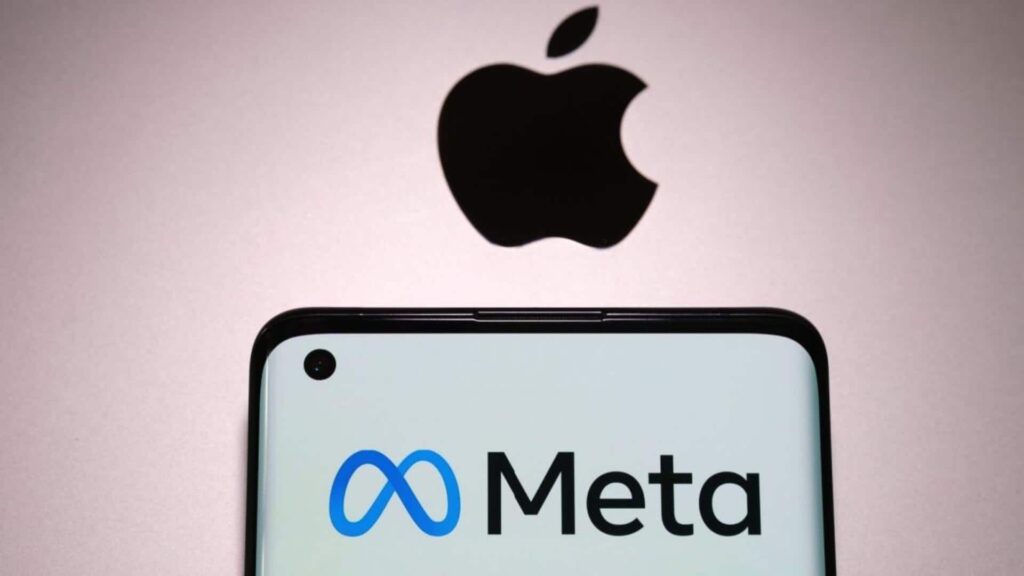In a move that underscores the growing importance of both artificial intelligence and user privacy in the tech industry, Apple has reportedly decided against integrating Meta’s AI models into its iPhones. This decision, primarily driven by privacy concerns, highlights the complex landscape of AI integration in consumer devices and the ongoing competition among tech giants in this space.

Initial Discussions and Rejection
Apple Rejects Meta’s AI Integration Over Privacy Concerns, Explores Alternatives
According to recent reports:
- Apple and Meta engaged in discussions in March 2024 regarding the potential integration of Meta’s Llama-3 AI chatbot into iPhones.
- These talks were part of Apple’s broader exploration of AI integration possibilities for its devices.
- Despite initial considerations, Apple ultimately decided against partnering with Meta for this AI integration.
Privacy Concerns at the Forefront
Apple Rejects Meta’s AI Integration Over Privacy Concerns, Explores Alternatives
The primary reason cited for Apple’s decision revolves around privacy:
- Apple reportedly found Meta’s privacy practices insufficient for their standards.
- This aligns with Apple’s long-standing commitment to user privacy as a core brand value.
- The decision reflects the ongoing tension between advancing AI capabilities and maintaining stringent privacy protections.
Exploring Alternative Partnerships
Apple Rejects Meta’s AI Integration Over Privacy Concerns, Explores Alternatives
While rejecting Meta’s offering, Apple is not abandoning its AI ambitions:
- Reports suggest Apple is considering partnerships with other AI leaders, including:
- OpenAI, the creator of the widely-known ChatGPT
- Google, potentially leveraging their Gemini AI model
- These potential collaborations indicate Apple’s continued interest in integrating advanced AI functionalities into its devices.
Implications for the Tech Industry
Apple Rejects Meta’s AI Integration Over Privacy Concerns, Explores Alternatives
This development has several significant implications:
- Heightened Focus on Privacy: Apple’s decision reinforces the importance of robust privacy practices in AI development and integration.
- Competitive Landscape: The rejection of Meta’s AI and exploration of alternatives highlights the intense competition among tech giants in the AI space.
- User Experience: Apple’s careful approach to AI integration suggests a commitment to balancing advanced features with user trust and data protection.
- AI Development Strategies: This move may influence how other companies approach AI development and partnerships, potentially prioritizing privacy alongside capability.
Challenges and Considerations
Apple Rejects Meta’s AI Integration Over Privacy Concerns, Explores Alternatives
As Apple navigates its AI integration strategy, several challenges and considerations emerge:
- Balancing Innovation and Privacy: Apple must find ways to introduce cutting-edge AI features while maintaining its strong stance on user privacy.
- Competitive Pressure: With other smartphone manufacturers rapidly integrating AI capabilities, Apple faces pressure to keep pace without compromising its principles.
- User Expectations: As AI becomes more prevalent in daily technology use, Apple needs to meet growing user expectations for AI-powered features.
- Regulatory Landscape: Increasing global focus on AI regulation and data privacy may influence future decisions and partnerships in this space.
Looking Ahead
Apple Rejects Meta’s AI Integration Over Privacy Concerns, Explores Alternatives
As the situation continues to develop, several key points will be worth watching:
- The outcome of Apple’s discussions with other AI leaders like OpenAI and Google.
- Any potential shifts in Meta’s privacy practices in response to this rejection.
- The timeline for Apple’s integration of advanced AI features into its devices.
- How this decision might influence the broader tech industry’s approach to AI integration and privacy.
Conclusion
Apple Rejects Meta’s AI Integration Over Privacy Concerns, Explores Alternatives
Apple’s decision to reject Meta’s AI integration due to privacy concerns represents a significant moment in the evolving landscape of AI in consumer technology. It underscores the complex balance between advancing AI capabilities and maintaining robust user privacy protections. As Apple explores alternative partnerships and continues to develop its AI strategy, the tech industry will be watching closely. This move not only reaffirms Apple’s commitment to privacy but also sets a precedent for how major tech companies might approach AI integration in the future, potentially influencing the direction of AI development and implementation across the industry.










Add Comment